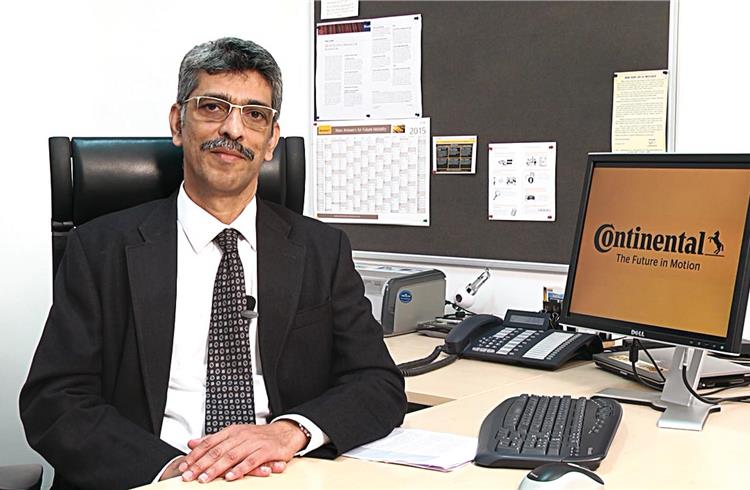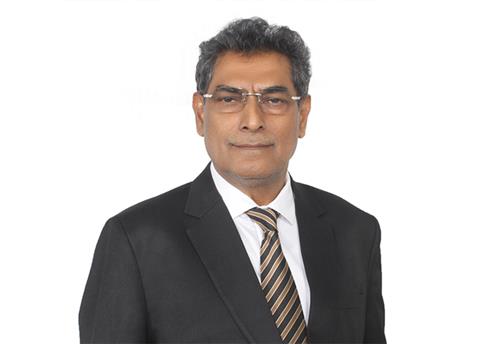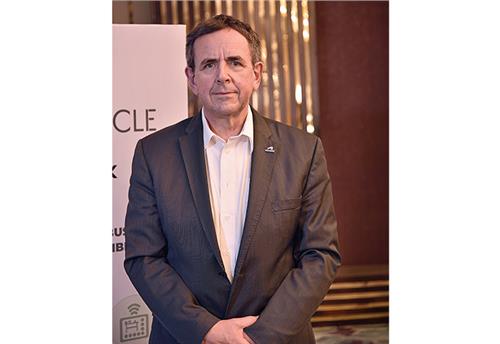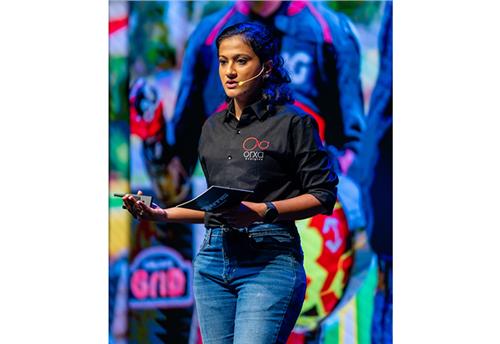'Continental is ready with the required technologies to meet the upcoming BS-VI emission norms by 2020 in India.'
Claude d’Gama Rose, Managing Director, Continental Automotive India, is upbeat on the India growth story. In an interview with Shobha Mathur, he speaks on industry trends, enabling OEMs meet BS VI norms and strategy.
Claude d’Gama Rose, Managing Director, Continental Automotive India, is upbeat on the India growth story. In an interview with Shobha Mathur, he speaks on industry trends, enabling OEMs meet BS VI norms and strategy.
What is Continental’s roadmap for future growth and investments in India?
While India has substantial growth potential, it has faced a significant economic slowdown in the past few years which has affected the demand growth adversely.
Continental firmly believes in the long-term potential of the Indian market and will continue to make investments at the right time. India is also emerging as a key contributor to our S&T organisation with our Technical Centre.
How is the demand in the BRIC countries for chassis, powertrain and interior technologies in automotives?
The opportunities within the BRIC markets are now highly differentiated. In China, we are expecting a four percent growth in passenger cars and light commercial vehicles production this year. In Brazil and Russia, a continuing slowdown is expected in production and sales volumes in 2016 due to economic and political factors.
India, in fact, is now showing faster growth than the emerging markets. Enhanced vehicle safety technologies, cleaner, more sustainable powertrain technologies and connectivity are emerging as important trends across the board.
Where does India stand in terms of new technology developments in the small car segment amongst BRIC countries?
India is emerging as a promising automotive market. Combined sales of cars, commercial vehicles and motorcycles recorded their best year in five years in the 12 months ended March 2015, with car sales rising four percent.
While India contends for a spot among the top global producers of passenger cars, we need to commit to better planning, policy implementation and technology adoption to bring down road fatalities. With much-needed intervention from the government and increasing demand from customers, there is growth in the adoption of safety technologies such as ABS, ESC and airbags.
As CO2 norms continue to get tighter, hybrid and electric vehicles will demonstrate significant environmental advantages over conventional petrol or diesel-powered cars. Incentive schemes like the Faster Adoption and Manufacturing of Hybrid & Electric Vehicles will drive the uptake of 48 volt mild hybrid systems, full and plug-in hybrids as well as full electric vehicles.
Electronics penetration in vehicles is rising significantly; however the demand for electronics and advanced functionalities often conflict with price sensitivity in India.
Localisation is important in order to meet the specific technology and cost requirements of the Indian market but there should be no compromise on quality in the process.
How has Continental Automotive been affected by the slowdown in the auto industry in India?
Like other market players, the slowdown has been difficult for us. However, we believe the government is taking steps in the right direction and the market situation will improve gradually.
The government has recognised safety as an important area of focus, given the growing number of fatalities in road accidents. ABS became mandatory for new commercial vehicles since 2014. The government’s recent draft notification mandates all new
two-wheeler models (125cc and above) manufactured from April 2017 and all existing two-wheeler models from April 2018 to be fitted with anti-lock braking systems.
Emissions are another important focus area. In September last year, the government of India and SIAM provided an overview of the Automotive Mission Plan 2016-26, which envisages the adoption of BS-V emission norms by 2019 and BS-VI for passenger cars, the implementation of the end-of-life policy for old vehicles and projects $80 billion in capex in the auto industry.
Globally, Continental has been supporting OEMs in meeting stringent emission standards, such as Euro 6. Specifically in India, Continental is ready with the required technologies to meet upcoming legislation in view of the Indian government’s announcement on skipping BS-V and advancing BS-VI norms to 2020.
Regulatory intent such as these and campaigns like Make in India, Smart Cities, Skill India and Digital India will play a major role in driving the automotive electronics industry to greater economic heights.
Also read:
- Continental to start manufacturing ABS and ESC units in India
- Continental eyes operational expansion at Chakan unit
This interview was published in Autocar Professional’s Indo-German Special Issue, July 1, 2016
RELATED ARTICLES
BRANDED CONTENT: 'We aspire to be among the leading sensors and electro-mechanical products manufacturer'
P. Parthasarathy, Founder & Managing Director, Rotary Electronics Pvt Ltd shares the company's commitment and vision to ...
‘Big opportunity for startups lies in products in India’: Detlev Reicheneder
As electrification levels the playing field, the focus on tech and R&D to bring innovative products is the mantra for st...
'I hope my journey makes people say — I can do this too'
Ranjita Ravi, Co-founder of Orxa Energies — the maker of Mantis e-bikes — shares the challenges of building a startup an...





 By Shobha Mathur
By Shobha Mathur
 13 Jul 2016
13 Jul 2016
 5138 Views
5138 Views









